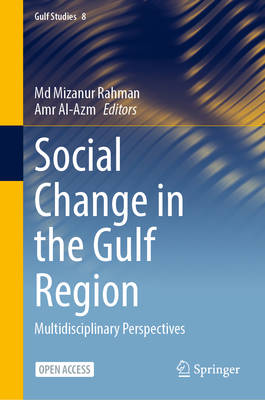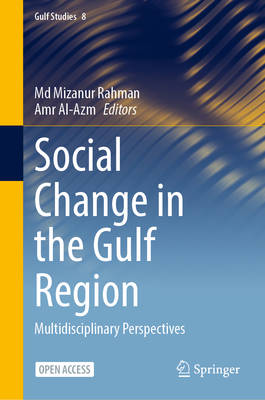
- Afhalen na 1 uur in een winkel met voorraad
- Gratis thuislevering in België vanaf € 30
- Ruim aanbod met 7 miljoen producten
- Afhalen na 1 uur in een winkel met voorraad
- Gratis thuislevering in België vanaf € 30
- Ruim aanbod met 7 miljoen producten
Zoeken
Social Change in the Gulf Region
Multidisciplinary Perspectives
€ 91,95
+ 183 punten
Omschrijving
This book focuses on the role of economic transformation, education, social media, migration, and urbanization in engaging social change in the Gulf societies, with a focus on their directions, magnitudes, and relevant policy options. It also takes into account how COVID-19 is affecting the lives of the people in the Gulf. Over the last few decades, the Gulf countries have undergone profound social change - generally understood as changes in human interactions and relationships that transform cultural and social institutions - affecting almost every aspect of life in GCC societies. The volume considers how the Gulf countries have achieved success in the education sector, and also examine the changes in conservative attitudes towards female education, as the enrolment of women in higher education is increasing steadily across the Gulf. It also unpacks the social impact of technology, as satellite television and the Internet have dramatically expanded exposure to outside views. Access tosocial media has similarly proved a powerful force for social transformation. The Gulf states now account for the world's largest flow of South-South migration, and the growth of the non-national population, as well as rapid urbanization, have also had a profound impact on Gulf society. This volume thus attempts to bridge gaps in understanding the rapid social change in the Gulf, offering practical solutions for policy interventions. It is of interest to scholars and students in Middle Eastern studies, specifically, as well as sociology, media studies, migration studies and educational policy.
Specificaties
Betrokkenen
- Uitgeverij:
Inhoud
- Aantal bladzijden:
- 659
- Taal:
- Engels
- Reeks:
- Reeksnummer:
- nr. 8
Eigenschappen
- Productcode (EAN):
- 9789811977954
- Verschijningsdatum:
- 22/03/2023
- Uitvoering:
- Hardcover
- Formaat:
- Genaaid
- Afmetingen:
- 156 mm x 234 mm
- Gewicht:
- 1138 g

Alleen bij Standaard Boekhandel
+ 183 punten op je klantenkaart van Standaard Boekhandel
Beoordelingen
We publiceren alleen reviews die voldoen aan de voorwaarden voor reviews. Bekijk onze voorwaarden voor reviews.










